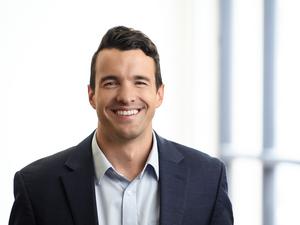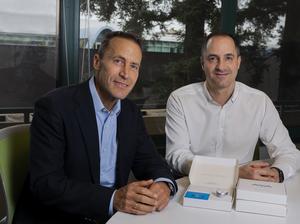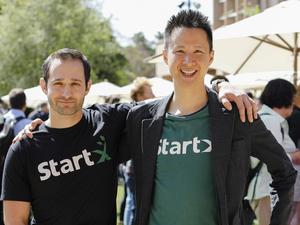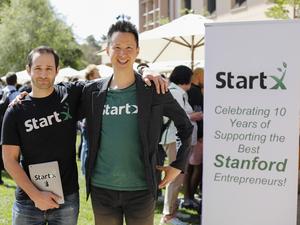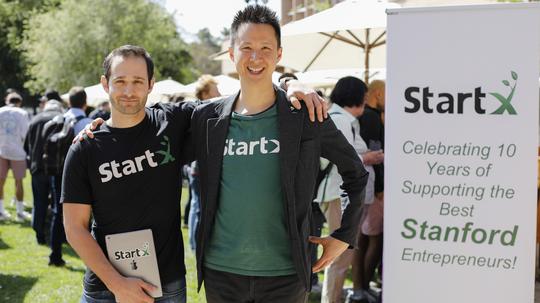
StartX, the Stanford University-affiliated founder network and training organization, is looking for a new CEO.
Joseph Huang, who has headed the non-profit since 2017, will step aside after the organization finds his successor, StartX announced Friday in a memo to its members. After the organization hires a new CEO, Huang will shift to an operational role and report to that person.
Among those searching for Huang's replacement will be Cameron Teitelman. As StartX's founder, chairman and former CEO, Teitelman knows the 13-year-old organization through and through and has a good sense of what traits its next leader will need. Even with the transition, the non-profit will still largely depend on volunteers and has no plans to take equity stakes in its members' startups, he said.
The Business Journal spoke with Teitelman Thursday in anticipation of the Huang announcement about why Huang is stepping down, how the organization and its CEO job has changed since he launched it and what's he's looking for in its next leader. This interview has been edited for length and clarity.
Why is Huang stepping down?
When he worked at Apple (Inc.) before joining StartX, he was the kind of person that after hours at his job, he would spend three or four more in the office helping teams and also helping people here with demo-day pitches. So when I decided I wanted to become chairman, he was the No.1 person on my list to become CEO. Now he wants to focus on the founder-support side of what we do and to continue to develop our programs.
How has the StartX CEO role evolved since you held it?
For me, it was a zero to one thing. I did the research and launched the first program. My job was getting us to financial sustainability and product-market fit, figuring out how we could be valuable to Stanford entrepreneurs. We built up a big program made up of a lot of patchwork things that was working pretty well, but it was all kind of duct-taped together.
Joseph is a very, very smart software guy. He kind of optimized everything and made it more efficient. A lot of what we do is run by volunteers, so it was important to take a lot of the potential for human error out. He also developed different programs and brought some experienced entrepreneurs and professors into them.
It seems like StartX has gone from an incubator or accelerator type of program to one that is more about collaboration and people supporting each other. Is that right?
You can think of us as a kind of giant matchmaking system. We do really well for students, early-stage founders and first time founders, helping them understand how to build a company and connecting them with people who can help. That was like our Stanford MBA program.
Then we built out our version of an executive MBA program, which is more aimed at founders who have already had a big success. I think over 50% of the cohorts these days are people who've already had a big exit or have already been in an industry for 10, 20 or 30 years.
What do experienced entrepreneurs get from StartX?
A lot of it is about the community. You have a bunch of very highly effective individuals who support each other in solving problems, like, "how do I develop my team?" "My sales team was working in the U.S., how do we go international?" Or, "I have somewhat of an executive team, and we're growing really quickly. How do I formalize the team and manage it effectively?" A lot of it's resource sharing and insights.
There are also a lot of second- or third-time founders who in their third time are moving into a different domain. They may have been doing a consumer startup and now say, "Never again, I'm doing an enterprise company." Or they did an enterprise company and now they're saying, "Ugh, never again. I'm going to build a biotech company." We have people they can connect with in all of the industries.
What are you looking for in your next CEO?
Mission alignment is No. 1. We are a non-profit, so it's not like they're going to be making tens of millions of dollars. They need to care about how we're making a unique space and support structure for founders that really, really helps them have a much, much higher probability of succeeding.
Me and Joseph are builders and organizational people. We want someone who's going to be the face of the organization, pushing it forward, someone who can deal with all the politics and all the machinations of a big community, but also who can raise money from donors and drive new initiatives while recruiting a really good executive team.
We need someone who's scrappy, but also can effectively recruit, manage an executive team and communicate with big donors.

